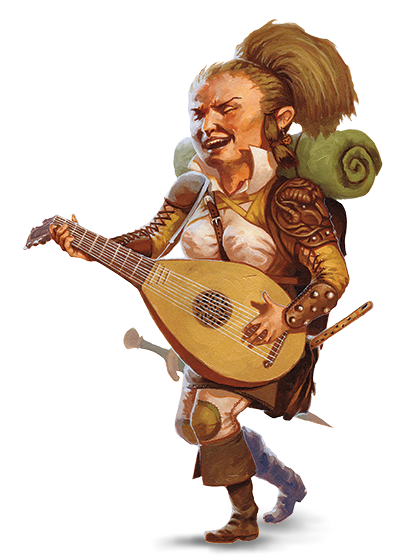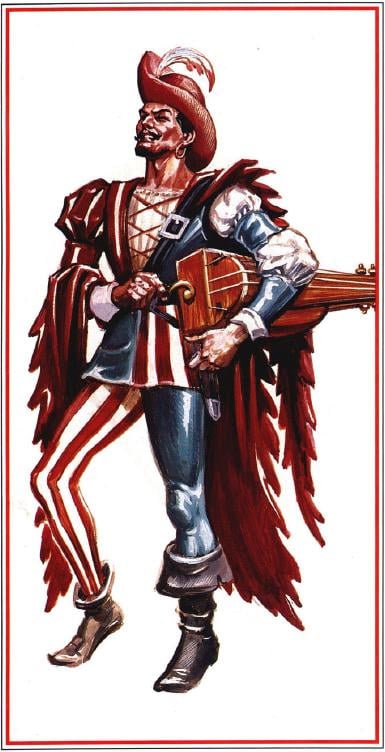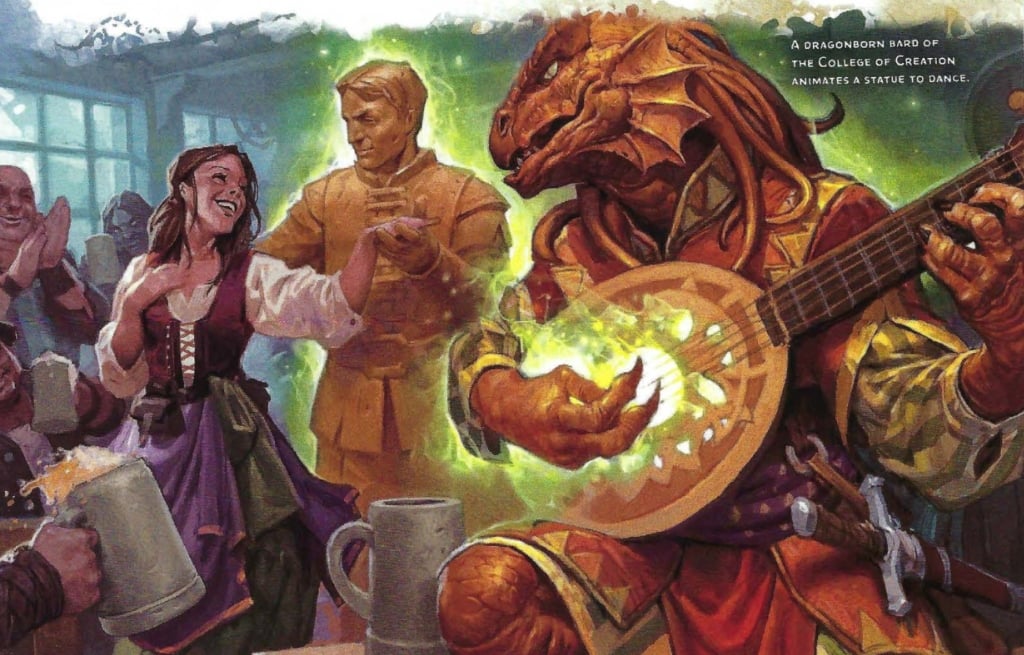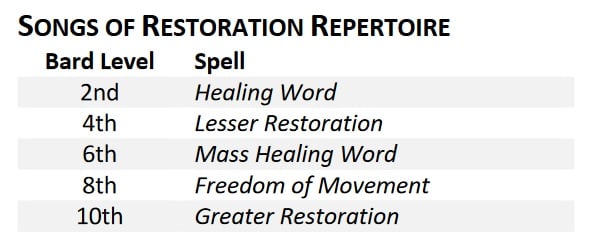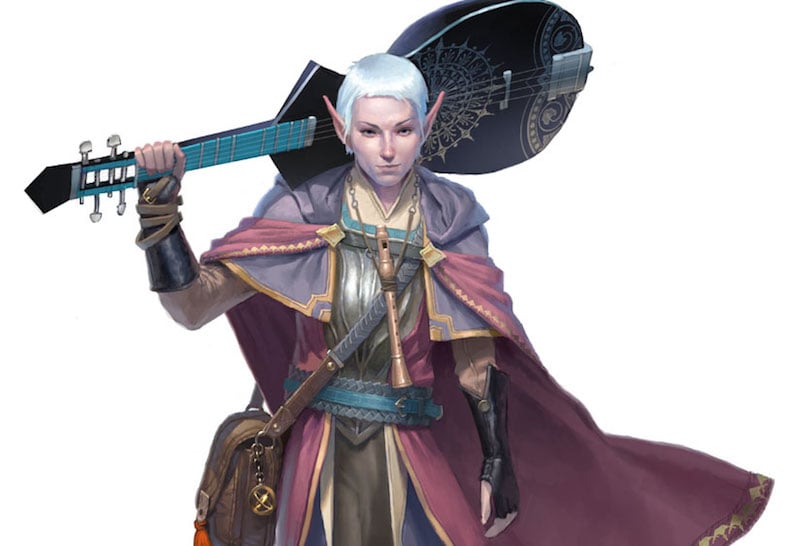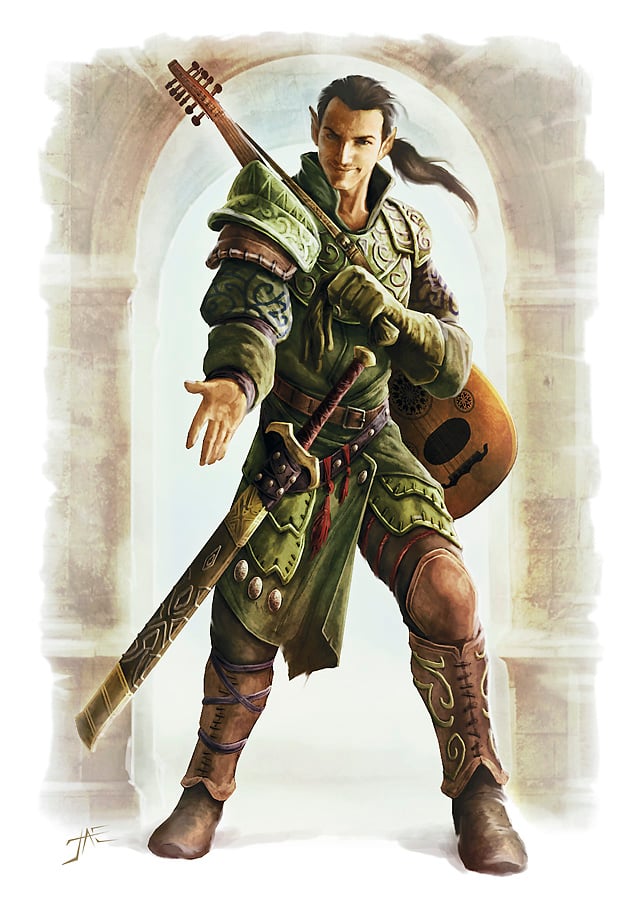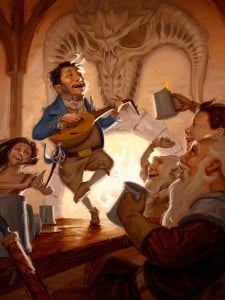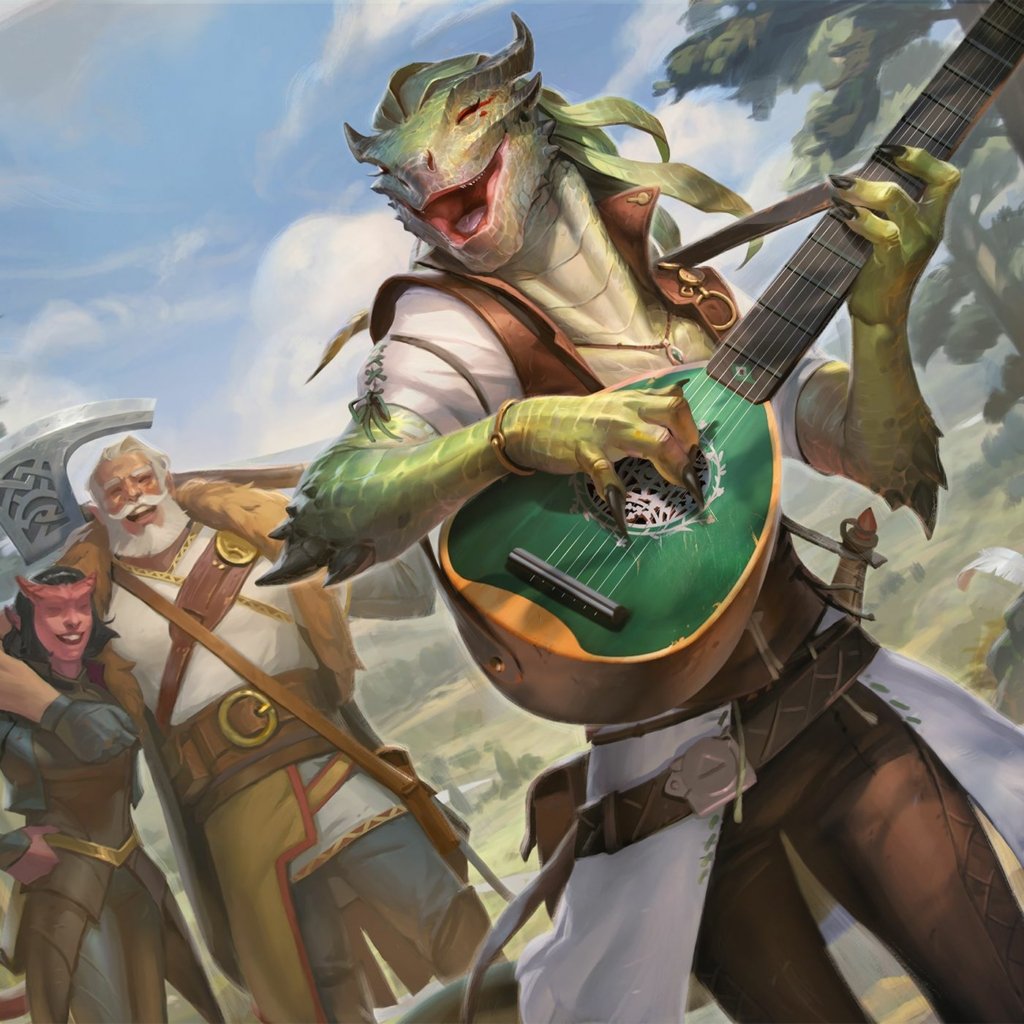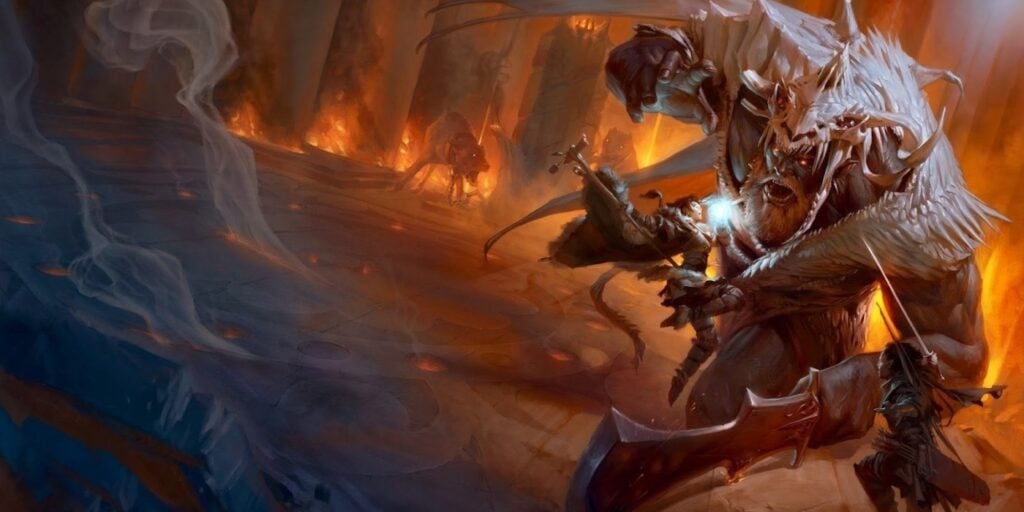D&D: The Expert Classes Bard – Barder, Better, Faster, Stronger
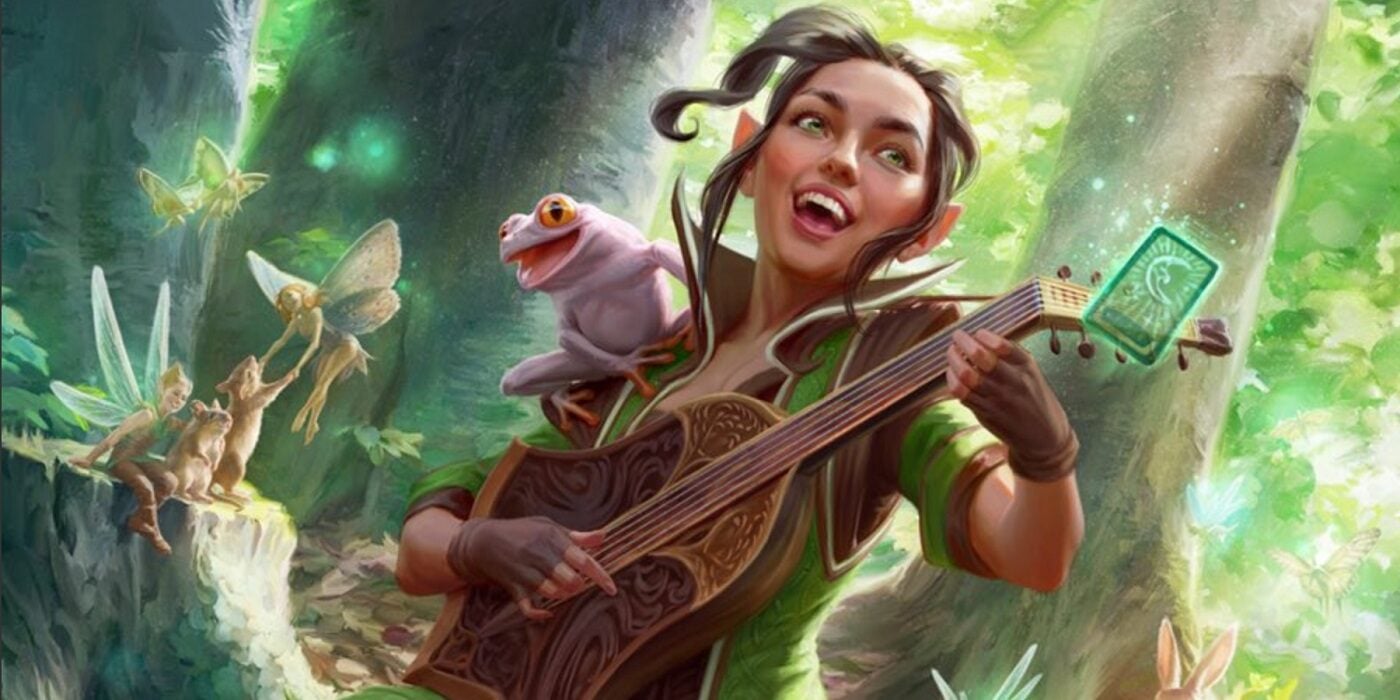

Everyone’s favorite magical minstrels got buffed in the Expert Classes Unearthed Arcana. The Expert Classes Bard… rocks.
The new Expert Classes Unearthed Arcana gave us our first look at how classes may shake out in the next iteration of D&D. And while these changes aren’t final, the outlook is pretty good. Especially for Bards. The Expert Classes Bard gets a few significant buffs.
And also one massive nerf which hopefully gets revisited by the end of the playtest cycle.
The Expert Classes Bard – More Mage than Musician
Bards are D&D’s longtime “jacks-of-all-trades”. They can fight, they can cast spells, and can buff party members. And while you used to have to follow an esoteric progression of classes to get there, Bards have always stood out. Because when you can do a little of everything anywhere from “pretty good” to “really well” it’s appealing for folks who want to be able to interact with every part of the game.
Bards are pretty good at everything. And this holds true in the Expert Classes Unearthed Arcana. The “Expert Classes Bard” as it were, plays a little differently. Spellcasting is front and center, even more so than for other Bards.
If the Expert Classes are all about being Polymaths, Bards studied wizardry a little bit more than the others. Especially since Bards prepare spells now. Like Wizards and Clerics in 5th Edition now, Bards pick a smaller selection of spells to prepare to cast for a day and can cast them however they like.
This adds a ton of versatility to an already versatile class. Bards start with access to the Arcane Spell list and are restricted to spells from the Divination, Enchantment, Illusion, or Transmutation schools. Which is still a huge selection. And it includes damaging spells like Thunderwave which is now a Transmutation spell in the new rules, as well as more traditional Bard “attack spells” like Dissonant Whispers.
And since spells are no longer restricted by class, it means Bards can pick up spells that were previously Warlock or Wizard exclusive, like Arms of Hadar or Black Tentacles.
But it’s not just an expanded spell list that benefits Bards. They have a ton of flexibility. Bards can swap out spells on a Long Rest. Meaning they’re no longer limited to a small number of spells known.
And on top of all that, they have even more access to magic spells at higher levels. When an “Expert Classes Bard” hits 11th level they get Magical Secrets which lets them pick a spell list: Arcane, Divine, or Primal. Now, when preparing spells, Bards can pick up to two spells from the chosen list from any school of Magic. They get to make another choice at 15th level. Which gives you access to most every spell in the game.
You can either have the entire Arcane Spell list to pick from and one other: Divine or Primal. Or you can pick from the restricted Arcane list, and then anything you want from the Divine and Primal lists. With limits. You can only pick a total of two non-Bard spells at any given point. But those two could be whatever you need.
And if that still wasn’t enough as soon as Bards hit 2nd level they gain access to healing spells too. An Expert Classes Bard’s Songs of Restoration feature adds bonus spells to your list. You’ll always count as having them prepared, and they don’t count against your limits:
Skills and Songs
And while the Expert Classes Bard might be a little more magical than usual, these days. They’re still every bit a master of skill and song.
The Expert Classes UA doesn’t deviate too much from a Bard’s core expectations. Bards get Expertise at 2nd level, picking two skills to gain double proficiency in. At 5th level, Bards still add half their proficiency bonus to any skill check they make that they lack proficiency with. It’s funny though, this used to be a 2nd level feature. So to see it stretched out to 5th level feels more like padding or adding filler than actually playing into the theme. This Bard feels a bit spread thin in terms of features. And at 9th level, they gain Expertise with two additional skills, making them masters of four trades.
All of that adds up to a pretty buffed Bard. Except there’s a big nerf to one of the iconic class features of the Bard.
Expert Classes Bard – Inspiration Nerfed
Bardic Inspiration represents the Bard’s ability to hand out bonuses to their comrades without casting spells. It’s also the fuel for many of the Bard’s existing subclasses. College of Swords Bards spend their Bardic Inspiration on making special flourishes. College of Spirits Bards use their Bardic Inspiration to tell magic ghost stories. The list goes on. And sure, there were limits. The 5th Edition Bard only had a number of uses of Bardic Inspiration equal to their Charisma modifier. Which was effectively 3, or potentially higher (4 or 5) if rolling for stats.
But the new Expert Classes Bard is limited to their Proficiency Bonus. Which at 1st level is only 1 fewer. But it scales much slower now. By the time most 5E Bards hit 4th level they’d gain an extra use of Bardic inspiration as a +3 Charisma modifier jumps to +4 And then again at 8th level they’d hit a soft cap of 5 uses of Bardic Inspiration.
In contrast, the Expert Classes Bard has only 2 uses of Bardic Inspiration all the way through 5th level. Doesn’t gain a 4th use of Bardic Inspiration until 9th level, then finally hits 5 Bardic Inspirations at 13th level.
But there’s more. Bards have a feature called Font of Inspiration which changes how often you replenish Bardic Inspiration die. It goes from replenishing on Long Rest to replenishing when you finish a Long or Short Rest. Which is huge for Bards. But 5E Bards get that at 5th level. So not only can they Inspire more often, but they can refresh their pool even earlier.
This is a shame because Inspiration itself has been reworked. An Expert Classes Bard can use Bardic Inspiration as a reaction to add to a failed d20 test (skill check, attack roll, or saving throw). Which is how most Bards might tend to play it anyway. But they can also heal with it, using a Reaction to heal a creature who has just taken damage. This can potentially keep a comrade from dying.
And that’s not even counting what they can do with their Subclasses.
Expert Classes Bard Subclass – College of Lore
We only get a look at one Subclass: the College of Lore. This is the “default Bard” subclass included in the SRD, so it makes sense it’s the first one we see. College of Lore Bards in 5th Edition ware all about getting more magic spells and using their Inspiration to mock their enemies.
The Expert Classes College of Lore Bard skips out on any extra magical secrets. Those are now part of the base Bard. Which is honestly great. Bards will love the extra flexibility. And the College of Lore instead focuses on what they do with their Inspiration. This is funny, because “using Bardic Inspiration better” feels a little lacking considering the changes to how often you get to do it. And it feels like it has very little to do with Lore.
Still, the subclass does seem fun. The third-level features are basically unchanged.
Gain three extra skill proficiencies and the ability to use Bardic Inspiration to subtract from an enemy’s attack roll, potentially causing it to miss. At 6th level Cunning Inspiration lets a creature using Bardic Inspiration roll the die twice, using the higher of the two rolls. At 10th level, Improved Cutting Words means the Bard also deals Psychic Damage when using Cutting Words, and the 14th level feature: Peerless Skill is the same, allowing a Bard to buff themselves.
In Conclusion
In conclusion, the Expert Classes Bard feels like it’s headed in a good direction. We can see where One D&D is going. There’s a lot of rebalancing of features. It’s not always a good thing. The Bardic Inspiration nerf feels like it might hit pretty hard. And outside of magic spells, the Bards feel like they have a smaller fraction of what they used to get. But maybe it’s just that they’re not nearly as frontloaded. It still feels weird to see a 2nd level class feature at 5th level, especially one that’s relatively minor, all things considered.
But that’s what surveys are for.
What do you think of the new Bard? Let us know in the comments

